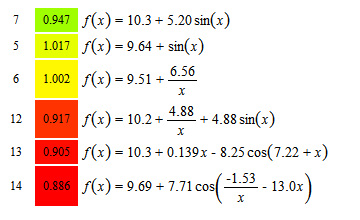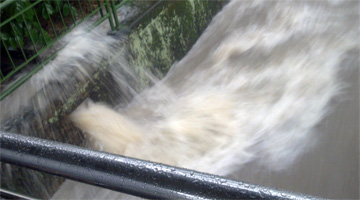|
| |
|
| |
|
|







|
|
TCHS 4O 2000 [4o's nonsense] alvinny [2] - csq - edchong jenming - joseph - law meepok - mingqi - pea pengkian [2] - qwergopot - woof xinghao - zhengyu HCJC 01S60 [understated sixzero] andy - edwin - jack jiaqi - peter - rex serena SAF 21SA khenghui - jiaming - jinrui [2] ritchie - vicknesh - zhenhao Others Lwei [2] - shaowei - website links - Alien Loves Predator BloggerSG Cute Overload! Cyanide and Happiness Daily Bunny Hamleto Hattrick Magic: The Gathering The Onion The Order of the Stick Perry Bible Fellowship PvP Online Soccernet Sluggy Freelance The Students' Sketchpad Talk Rock Talking Cock.com Tom the Dancing Bug Wikipedia Wulffmorgenthaler |
|
bert's blog v1.21 Powered by glolg Programmed with Perl 5.6.1 on Apache/1.3.27 (Red Hat Linux) best viewed at 1024 x 768 resolution on Internet Explorer 6.0+ or Mozilla Firefox 1.5+ entry views: 1952 today's page views: 384 (14 mobile) all-time page views: 3386425 most viewed entry: 18739 views most commented entry: 14 comments number of entries: 1226 page created Fri Jun 20, 2025 08:46:16 |
|
- tagcloud - academics [70] art [8] changelog [49] current events [36] cute stuff [12] gaming [11] music [8] outings [16] philosophy [10] poetry [4] programming [15] rants [5] reviews [8] sport [37] travel [19] work [3] miscellaneous [75] |
|
- category tags - academics art changelog current events cute stuff gaming miscellaneous music outings philosophy poetry programming rants reviews sport travel work tags in total: 386 |

| ||
|
This is slightly late, but creator of Lisp John McCarthy's blue screen came up a couple of weeks back. One of my profs remarked that (practical?) computing's pioneers are sadly increasingly entering their final iterations. I haf foun eet! Came across a neat piece of software called Eureqa some time ago, which as it happens would have been doubly appropriate in Lisp (if it isn't - I'm not sure what language the codebase is in). What is does, given a ton of data, is to automatically generate reasonably-parsimonious formulas to describe the data. This may be more easily explained with an example. Fed a hundred random points on the circumference of a circle centered at [5,10] with radius 20 (N.B. though randomness and circles may not go naturally together), this is what Eureqa modelled after a few minutes:  The computer hast spoken whereas the correct formula would be y=10+20*sin(acos((x-5)/20)), from the parametric representation. We can note that the program already gets the constant addition of approximately 10, and also that the remainder is a multiple of some trigo function. What it has (thus far) failed to grasp is that the inside requires an inverse trigo function - which might have come about because inverse sine and cosine accept only a limited domain. After attempting to apply Eureqa on some datasets, I have to declare the end of human scientists slightly exaggerated. Most of the examples I have seen are relatively trivial to the best of my knowledge, for instance confirming that global temperatures are on the up given a set of datapoints, when an untrained human could probably make out the trend (which appears undeniable, though what exactly has caused the worst of it could still be debateable - just). Not only that, Eureqa requires a good amount of hand-holding (unless you happen to own a supercomputer or megacloud) - the researcher has to choose the operations (and fitness metric, and weights...) which, according to his own knowledge, are most suited to the problem at hand (with the circle example, these were the trigo functions), at least if he wants to get results before he gets old. So relax, Ph.Ds, you won't be replaced by software as yet - especially if you're washing test-tubes, since there is no intention for Eureqa to incorporate that functionality that I know of. But don't forget to look over your shoulders. Simple As Needs Discovered that Mr. Robo's Roborovhunt character recognition could have been improved by simply filtering single and double-pixel pairs out, instead of going through all the trouble of detecting lines. This increased the success rate from an overstated 70% to a true 85% (new version promptly uploaded by Mr. Robo) It should be said here that it is important to consider closely the problem at hand when devising a solution; all too often, a student discovers something awesome-sounding like "neural networks", and proceeds to try and bludgeon his way out of everything he encounters with it. Using a perfectly good implementation of using a genetic algorithm (vaguely similar to what Eureqa does) to detect curves to illustrate - for the problem specified, which is reconstructing a broken-up curve in an image with pixel noise, what would a programmer do? The genetic algo method is viable, certainly, if time is of no objection. The paper suggests roughly three-plus minutes per 120x128 image on a Pentium II. However, it is easy to suspect that joining up close-enough pairs, and then inspecting the (relatively few) endpoints of the line fragments thus formed, might produce comparable results far more quickly, which may be important in a production environment. This technique would have no name worth the mention, but a working application by any title sounds just as sweet. Don't get me started on the sometimes-pointless nitpicking about terminology like decision trees versus rule-based systems... No More Old Economy Read 23 Things They Don't Tell You About Capitalism recently, and was most taken by the assertion that most people in rich countries are paid more than they should be (Thing 3). The author makes his point using the example of a bus driver in India, who earns on average 50 times less than one in Sweden. Quite clearly, Chang says, Sven is not fifty times better at Ram at driving a bus, and it could be argued that navigating pothole-ridden, chicken-crossing dirt roads takes more skill than smooth asphalt. The inescapable conclusion then is that "poor people from poor countries are usually able to hold their own against their counterparts in rich countries", and the onus then lies more with the rich people in poor countries. Seen in this light, a huge proportion of most peoples' accomplishments are due as much to their system they found themselves in, rather than their own merits, i.e. dumb luck. But it's always nicer to think that one drives a bus fifty times better (until one prices oneself out of the market, perhaps)... Other notable things: Companies should not be run in the interests of their owners (i.e. shareholders, since it encourages short-termism and even corporate looting), Free-market policies rarely make poor countries rich (a case of do as I say, not as I did), we do not live in a post-industrial age (yet), making rich people richer doesn't make the rest of us richer, and financial markets need to become less, not more efficient (see the Tobin tax). Not Corny Any More The corn on the sole of my foot has finally healed, and the blackened nail on the other foot is half-gone (passed on the opportunity to collect nail-growth data). Ironically, this was accompanied by being irritatingly unwell-but-not-quite-sick for the past week. Falling way behind on the gym sessions. Water Under The (NUS) Bridge  Remind me why we pay for H2O again Nine Noughts And Counting Mr. Robo (0/900 seeds): "Fulham to draw Tottenham! (at 3.20)" FAKEBERT (944/900 seeds): "City to beat QPR by two or more goals (at 1.80)" Next: Walking Big
|
|||||||
 Copyright © 2006-2025 GLYS. All Rights Reserved. |
|||||||